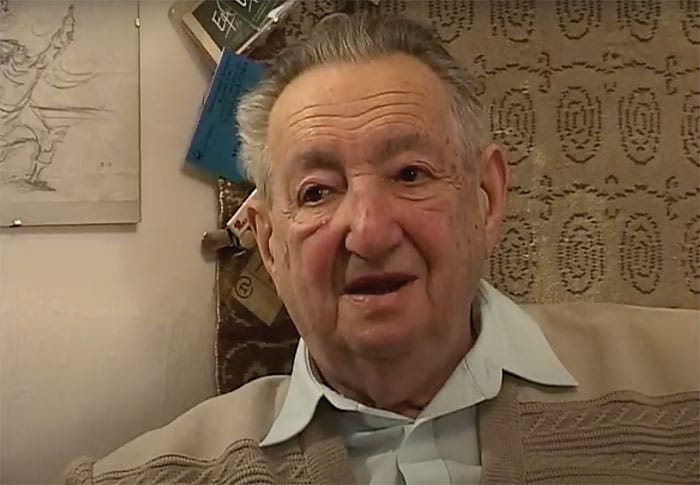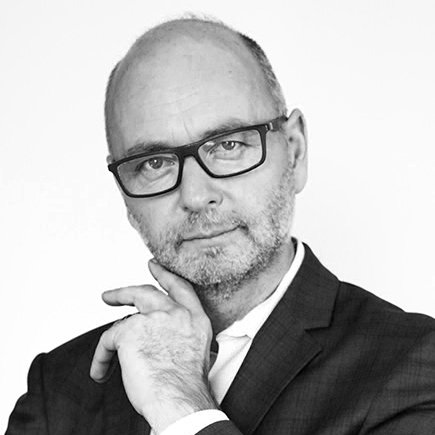 screenshot from YouTube
screenshot from YouTube Marek Edelman had fought alongside the legendary fighters of the Warsaw Ghetto Uprising in 1943. Fifty-five years later, when I attended a talk he was due to deliver in Cape Town, South Africa, he was the last surviving member of the Warsaw Ghetto Uprising high command. I could feel the excitement in the room as several hundred people readied themselves to hear heroic stories from the sewers and flaming streets of the ghetto. He had helped lead an epic battle against the might of the German military, which hundreds of years from now will likely be recalled alongside the Siege of Masada and the Bar Kochba Revolt. He was a true Jewish hero.
Marek Edelman opened his talk speaking Yiddish, stating, דאָס איז אַ דענקמאָל טאָג – this is a day of memorial. He repeated it several times for emphasis, but it was not Holocaust Remembrance Day, or Yom Ha Shoah, or any other day of memorial for that matter. He was making the point that every day is a day to remember. His act of remembrance was to stand before his audience as a witness on behalf of the dead.
Like many Holocaust survivors, after World War II he had assumed the world would want to hear and had shared his story in detail. And, like many Holocaust survivors, he had been bitterly disappointed by the silence of a world not ready to listen.
In 1946, Marek Edelman had written one of the first accounts about the Holocaust in a book entitled “The Ghetto Fights.” He was no stranger to telling his story. In his book he detailed what had unfolded day-by-day, blow-by-blow. Like many Holocaust survivors, after World War II he had assumed the world would want to hear and shared his story in detail. And, like many Holocaust survivors, he had been bitterly disappointed by the silence of a world not ready to listen. In 1998 the audience in Cape Town was enthusiastic to hear his stories of heroism and resistance in the face of overwhelming odds.
He suggested that the most appropriate way to memorialize the past is through how we live our lives in the world today.
But Edelman had nothing to say about his heroic past, and cut straight to his conclusions. He talked about human values, and the need to speak out against injustice. He suggested that the most appropriate way to memorialize the past is through how we live our lives in the world today. He told his audience that such actions were the best way to remember the victims of the Holocaust, who had had no such advocates at the time. Within ten minutes he completed his remarks and returned to his seat, without so much as a word about the Warsaw Ghetto Uprising. Edelman agreed to take questions, whereupon the frustrated audience tried to elicit stories from his time in the ghetto. One questioner begged him to give some historical details so that he could tell his own children. Edelman responded to the father that if he wanted to tell his children anything about the encounter, that he should remind them never to behave toward others as the Germans had behaved towards the Jews. Twenty minutes into his ninety-minute program, Marek Edelman concluded his remarks, much to the disappointment of his audience.
In November 2005, the United Nations General Assembly officially adopted January 27th as the International Day of Commemoration in Memory of the Victims of the Holocaust. Many other countries around the world adopted the day as their own National Day of Holocaust Remembrance. In 2005 I became the Chairman of the UK Holocaust Memorial Day Trust, a not-for-profit founded and funded by the British Government to oversee a program of Holocaust memorial activities across the country. As a National Day of Remembrance, it was patronized by the Queen and attended by successive Prime Ministers. Still today it attracts millions of people — the vast majority of whom are not Jewish — to participate in memorial activities. A world that was once silent about the Holocaust is now ready to listen. But what is the right way to remember events quickly receding into the past?
Marek Edelman’s talk in Cape Town has always helped guide me. Firstly, he began by remembering the dead. Edelman had fought with some of the most courageous Jewish leaders of his time. He saw them die just because they were Jews, alongside hundreds of thousands of others in the Warsaw ghetto. Every day thereafter had been a day of memorial for him. Secondly, he made clear that legendary stories from the past are only meaningful if they are applied in the present. He did not want to become an object of the past. He was a living person in the present. He wanted the father in the audience to imbue his children with the kind of values that would enable them to make courageous choices in future. In 1943 he had made a choice to fight for justice and survival. It was not a decision to become a hero, but to be willing to die for his principles. He was teaching us that if that past is to have meaning in the present, we sometimes must make difficult choices in the present.
As I left the room that day in Cape Town I was not disappointed that Marek Edelman had not described his experiences in the Warsaw Ghetto Uprising. I realized that a true hero of the Warsaw Ghetto Uprising had just personally invited me to join him and be willing to make sometimes risky, but worthwhile contributions to the present.
Stephen D. Smith is Executive Director Emeritus of USC Shoah Foundation and CEO of StoryFile Inc.























 More news and opinions than at a Shabbat dinner, right in your inbox.
More news and opinions than at a Shabbat dinner, right in your inbox.